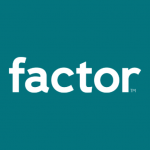In the second half of our “10 Questions (Plus One to Grow On) for 10 Years” interview with our founders, Gary Carlson and Bram Wessel, we tackle early lessons, mentorship, and legacy. (The first five questions and answers can be found here.)
6. Is there a lesson you learned early on that remains at the forefront of your mind?
GC: Always making sure we meet the client where they are while showing them a path forward. It’s all you can do.
BW: I started learning this early, but I think it actually took a long time for it to sink in; the best way to sell is to listen. And once you’ve made the sale, don’t forget to stop selling – but always keep listening.
7. What do you tell young professionals wanting to build an IA career today?
BW: I’ve been mentoring, giving talks, teaching in this field for about 15 years now, and I always, always, always tell students or early career folks to start by getting involved in some user research. Anything you can find to interact with actual users in an ethnographic setting, even if it’s just grabbing folks off the street and asking them to use something, is invaluable. It changes your perspective completely and forever. There’s no substitute for it and it’s where you learn the most.
GC: And I’d add to find an anchor skill to build the next step of your career. So dig deep into a search tool, UX project, etc. Once that is complete, I believe you will gain the perspective necessary to bring IA skills to a wider range of projects.
8. What’s the dream client? Maybe not by name, but perhaps by industry or attributes?
BW: Our dream client is someone who has influence and operational impact at an organization like that.
GC: It’s “simple”: A clear business case articulated by a senior executive, strong organizational alignment around the execution, decent tech stack and tech resources, and a strong project advocate who knows how to navigate the organization.
BW: We’ve had these clients who genuinely understand the value of the work we do and advocate for it throughout their organization over the long term. It’s a beautiful thing.
9. What do you wish your clients and potential clients understood more easily?
GC: That fundamentally information is an organizational asset that needs to be treated as such.
BW: Yes. Our work is foundational and you can’t skip steps. This work isn’t for the faint of heart or impatient. This isn’t agile or ‘move fast and break shit’. To be successful, you need to have the courage to make a broad commitment and the persistence to see it through, no matter how impatient your stakeholders may get.
10 What do you want Factor to look like 10 years from now?
BW: That we’ve built a generation of thought leaders and alumni that can take the baton and fight the good fight for useful, high-quality information. Our hair isn’t getting less gray.
GC: I’d like to see a bigger company that is better at training and mentoring folks. I’d like to see our methodology focussed on data/information quality and ethics.
+1 One to Grow On:
What are your predictions for how the business will change in the next 10 years?
GC: I don’t think AI will have replaced us, and data quality and ethics will become better understood.
BW: Right. We still don’t know where we are in the AI innovation curve. If we’re early in it, things are going to be massively different in 10 years. If we’re in the middle of it, maybe not so much. If we’re late in it, it might just be another tool in the toolbox that speeds things up and makes things easier. My gut tells me it’s not the third option, though, so everyone has some degree of adaptation ahead of them.

